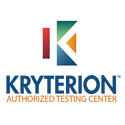Cybersecurity Analyst+ (CySA+) (CS0-001)
About This Course
CompTIA is a top-notch provider of vendor-neutral IT certification programs. Aimed at reviving the IT vertical, CompTIA’s IT certifications validate professionals with best practices and industry-grade expertise. With 2,000,000+ successful certifications, CompTIA is the most sought after IT certification domain when it comes to cybersecurity.
CompTIA’s CySA+ is a globally recognized and vendor neutral certification course in cybersecurity, which trains you to apply behavioral analytics for improving IT security. CySA+ validates professionals for critical skills and expertise required to avert, combat and detect cybersecurity vulnerabilities and threats.
CySA+ course instill skills to help you kick-start a career in IS analysis, which stands at 7th rank in the 100 best IT and tech jobs. In fact, it is estimated to be one of the fastest growing job categories by 2022. CySA+ certified cybersecurity experts tend to fetch an average salary of $90,120.
Who Should Attend This Course
CySA+ certification course is aimed at anyone interested to learn about cybersecurity or is looking out to hone his/her cybersecurity knowledge. The course prepares the candidates to pass CySA+ exam. It serves as a steppingstone to becoming an expert cybersecurity analyst.
Why This Course
Since cyber attackers use novel ways to evade firewalls, it is increasingly important to have analytics based approach in IT security for organizations. Behavioral analytics knowledge covered in the CySA+ course helps a person to identity as well as combat malware and advanced threats.
Here are few convincing reasons to why CySA+:
- You learn to execute data analysis
- CySA+ certification is in huge demand these days
- One of the fastest growing job categories in cybersecurity
- Industry supported.
- CySA+ certification bridges skills gap between CASP and Security+ exams.
Did you know that experts with CompTIA CySA+ certification earn an average salary of around $90,120/annum. (Source: itcareerfinder.com)
Course Objectives
The CySA+ coursework covers the following aspects:
- Network threats
- Securing corporate enterprise network
- Performing cybersecurity incident response
- Determining impact of cyber incidents
- Preparing cyber response and incident toolkit
Course Prerequisites
CompTIA recommends you to have Security+, Network+ or any equivalent knowledge before you take up the CySA+ certification course.
Basic understanding of IP/ TCP addressing, troubleshooting tools and core protocols.
Course Benefits
The course offers you with the following benefits:
CySA+ lets you:
- Analyze and conduct reconnaissance
- Respond to network threats
- Secure corporate enterprise network
- Perform cybersecurity incident response
- Determine impact of cyber incidents
- Prepare cyber response and incident toolkit





























